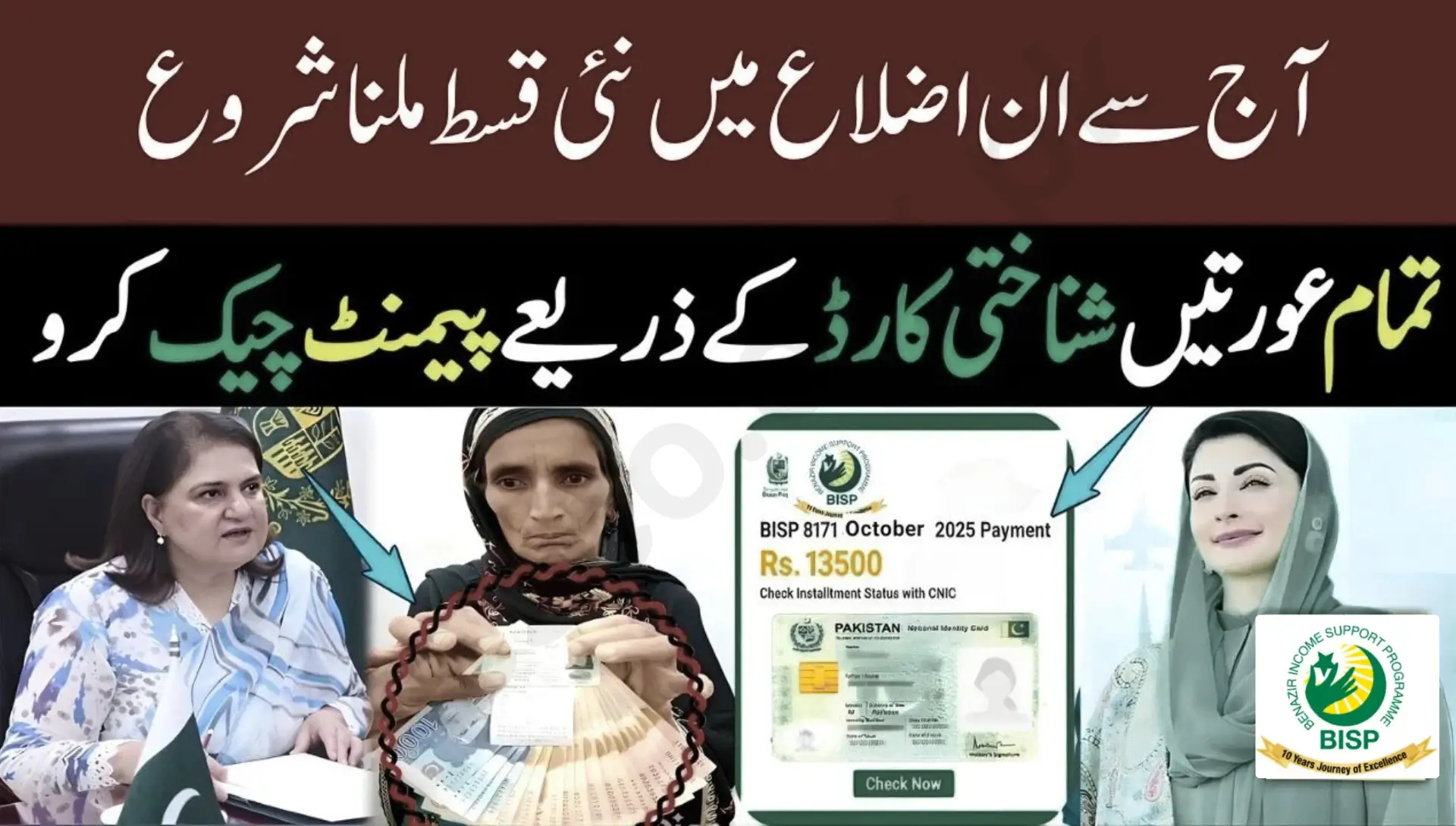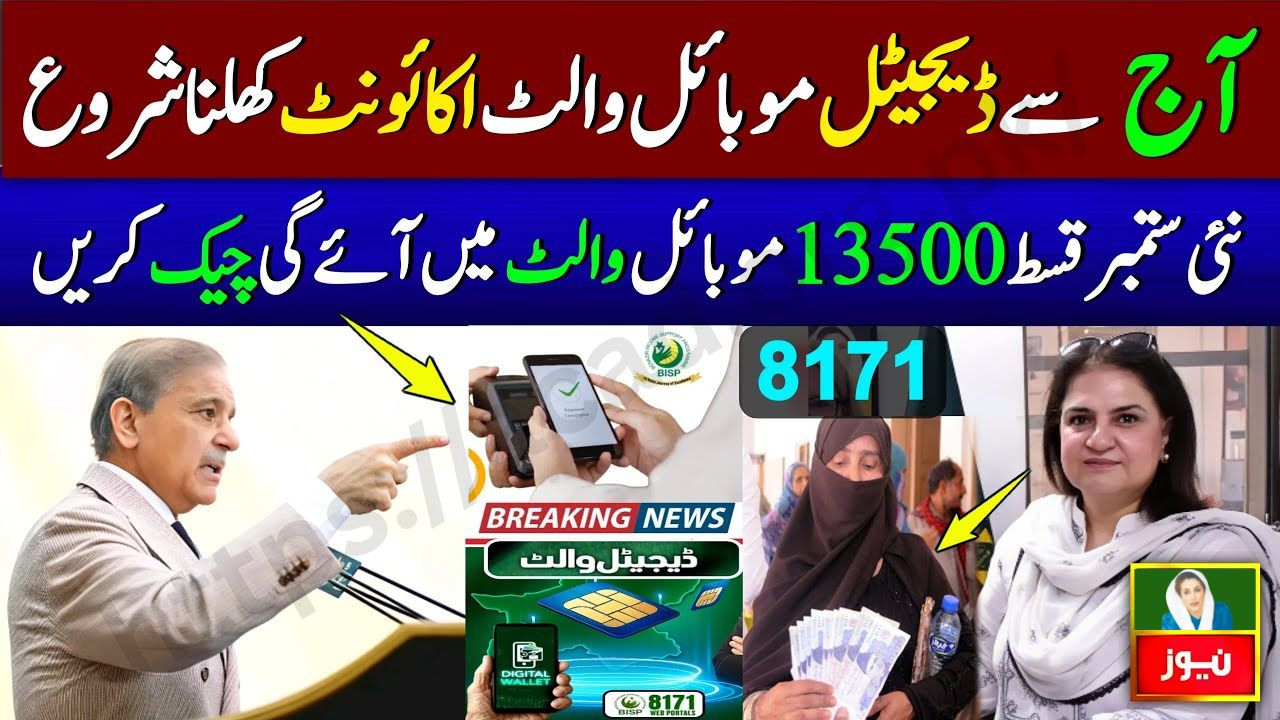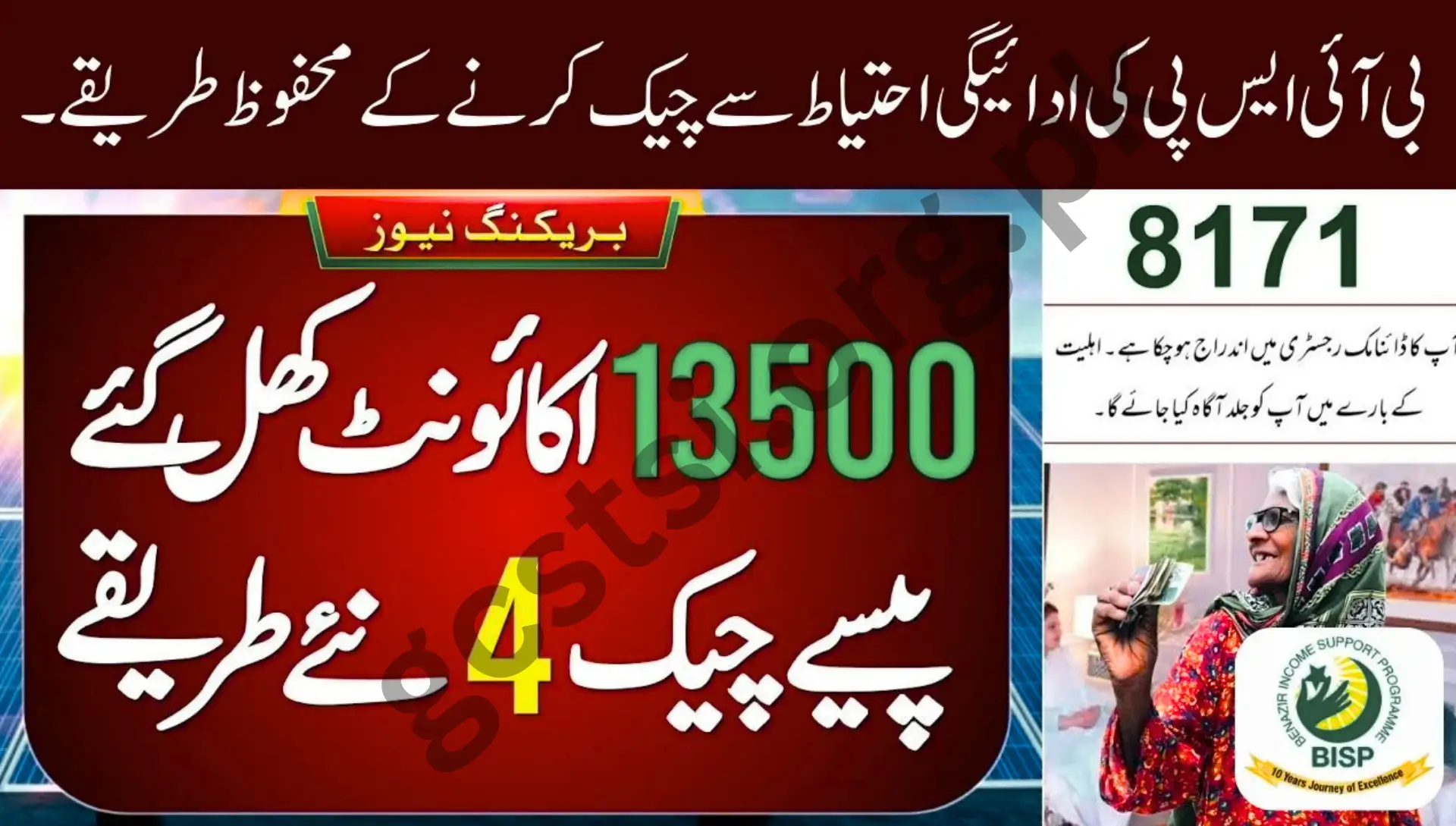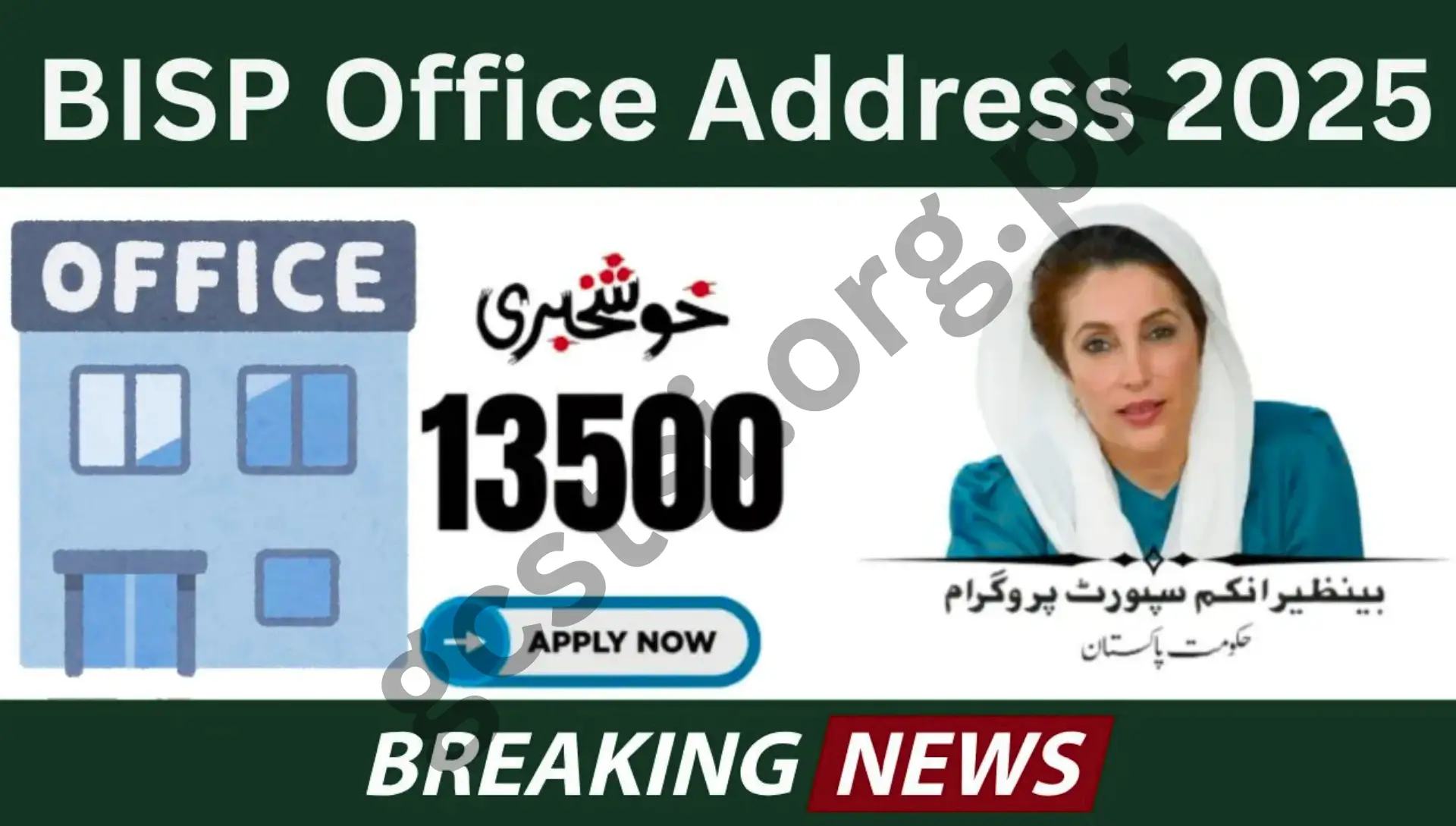Benazir Mazdoor Card 2025 Registration Begins in Punjab – Eligibility & Apply Guide. The Benazir Mazdoor Card 2025 registration has officially begun in Punjab, giving thousands of laborers a chance to receive long-awaited financial relief, healthcare coverage, and social security protection. If you are a daily wage worker, factory employee, construction laborer, or domestic worker, this guide explains exactly how you can apply step-by-step and who qualifies for the program.
This article covers eligibility, benefits, required documents, registration steps, support channels, and Maryam Nawaz’s labor reforms, all written in a simple, human-friendly way.
What Is the Benazir Mazdoor Card?
The Benazir Mazdoor Card (BMC) is a government-issued digital identity card designed to officially register informal laborers across Punjab and include them in the social protection system.
For years, thousands of workers in Punjab’s construction sector, factories, workshops, markets, transport, and domestic work were excluded from healthcare, financial assistance, and safety nets. The Mazdoor Card aims to change this by connecting laborers with:
- Social security benefits
- Free healthcare
- Educational support for children
- Emergency financial assistance
- Food and utility subsidies
- Future labor welfare schemes
The card is being launched by the Punjab Social Protection Authority (PSPA) in partnership with the Punjab Employees Social Security Institution (PESSI).
Purpose of the Benazir Mazdoor Card 2025
The initiative is designed to:
1. Recognize Informal Labor
Most workers in Punjab operate without contracts or formal documentation. The Mazdoor Card identifies and registers them for the first time.
2. Offer Social Security Benefits
The program ensures that workers are not left out of government support systems.
3. Provide Medical & Educational Relief
Cardholders receive access to PESSI hospitals and scholarships for their children.
4. Protect Worker Rights
This scheme links laborers directly to Punjab government support channels and future subsidy programs.
Eligibility Criteria for Benazir Mazdoor Card Registration (2025)
To register for the Benazir Mazdoor Card, applicants must meet the following requirements:
| Criteria | Details |
|---|---|
| Residency | Must be a resident of Punjab |
| Occupation | Daily wage workers, construction laborers, factory workers, drivers, plumbers, electricians, domestic workers, shop helpers, carpenters, mechanics, etc. |
| Identity Documents | Must have a valid CNIC |
| Age Limit | 18 to 60 years |
| Income Status | Must not be a taxpayer |
| Employment Type | Not a government employee |
| Other Schemes | Should not be receiving similar benefits in other social protection programs |
This eligibility structure helps prioritize low-income and unprotected laborers who are outside formal employment networks.
Benefits of the Benazir Mazdoor Card 2025
The program offers multiple social protection services. Here is a breakdown of the major benefits:
| Benefit Type | Details |
|---|---|
| Free Healthcare | Treatment available at government and PESSI hospitals |
| Educational Scholarships | Financial support for children of cardholders |
| Monthly Support | Stipends for families meeting income criteria |
| Accident & Disability Compensation | Emergency financial support for injuries or disabilities |
| Death Grant | Compensation for family in case of accidental death |
| Food Subsidy | Discounts at utility and ration stores |
| Social Security Inclusion | Automatic registration for future Punjab welfare schemes |
These benefits collectively help reduce poverty, improve access to health, and create financial stability for low-income labor families.
Documents Required for Benazir Mazdoor Card Registration
To apply for the card, you will need:
- Original CNIC
- Two passport-size photos
- Proof of occupation
- Employer certificate, union membership card, contractor note, workshop slip, or workplace verification
- Mobile number for SMS alerts
These documents help confirm your identity and occupation for official registration.
How to Apply for the Benazir Mazdoor Card 2025 (Offline Method)
The registration process is simple and free. You can submit your application at your nearest labor or PESSI office.
Step-by-Step Registration Process
Step 1 — Visit the Nearest Office
Go to a nearby Labor Department office or PESSI facilitation center in your district.
Step 2 — Bring Your Documents
Carry your CNIC, photos, and any occupation-related proof.
Step 3 — Fill Out the Registration Form
Ask the officer for the Mazdoor Card Form, fill it carefully, and attach the required documents.
Step 4 — Submit for Verification
The officer will check your details and forward your application for verification.
Step 5 — Wait for SMS Confirmation
Once your information is approved, you will receive an SMS from PSPA or PESSI.
Step 6 — Receive Your Mazdoor Card
After approval, the card will be issued and delivered to your nearest center.
Upcoming Online Registration Portal (2025)
The Punjab government is developing a digital portal and mobile app to make registration easier.
With this portal, workers will be able to:
- Apply online using CNIC
- Upload documents
- Track application status
- Download their digital Mazdoor Card
The link will be shared as soon as the portal goes live.
Support Channels & Helplines
If you face any issues during registration, here are your official support options:
- Labor Department Helpline: 0800-73774
- PESSI Regional Offices: Lahore, Multan, Rawalpindi, Faisalabad, Bahawalpur & more
- Punjab Social Protection Authority Website: pspa.punjab.gov.pk
- Union Councils: Local staff available for worker assistance
- Mobile Registration Units: Teams will visit remote areas
These assistance points ensure every eligible laborer can complete registration without difficulty.
Maryam Nawaz’s Vision Behind the Mazdoor Card Initiative
Chief Minister Maryam Nawaz Sharif has emphasized improving the lives of Punjab’s laborers through structured welfare programs. She believes that workers deserve protection, dignity, and recognition.
Key Labor Welfare Reforms Under Her Administration
- Expansion of healthcare access
- Scholarships for worker children
- Increased minimum wage
- Digital record-keeping of labor data
- Housing support for low-income families
During the launch, she said:
“This card is not charity — it is your right. Every hardworking laborer deserves security, respect, and recognition.”
Why the Benazir Mazdoor Card Matters in 2025
This scheme is more than a monthly support program. It creates:
- Formal identity for informal laborers
- Financial safety nets for uncertain income patterns
- Access to emergency assistance during accidents or disability
- Educational support for the next generation
- Healthcare protection for workers and families
With Pakistan’s labor force playing a critical role in economic development, this initiative aims to protect those who contribute the most yet receive the least.
FAQs
1. What is the Benazir Mazdoor Card in Punjab?
It is a government-issued welfare card offering healthcare, financial support, and social security benefits to labor workers.
2. Who can apply for the Mazdoor Card 2025?
Any Punjab resident aged 18–60 involved in labor work such as construction, domestic jobs, factory work, or skilled trade.
3. Is the registration free?
Yes, applying for the Benazir Mazdoor Card is completely free.
4. How long does the verification take?
Verification usually takes 7 to 30 days, depending on district workload.
5. What benefits does the Mazdoor Card offer?
Free healthcare, education scholarships, accident compensation, and monthly financial support.
6. Can government employees apply?
No, government employees are not eligible.
7. Will there be online registration?
Yes, an online registration portal is launching soon.
8. How will I know if my application is approved?
You will receive an SMS from PSPA or PESSI.
Conclusion
The Benazir Mazdoor Card 2025 is a historic step toward protecting and supporting Punjab’s hardworking labor community. If you meet the eligibility criteria, apply as soon as possible to unlock access to healthcare, financial assistance, and new welfare schemes.



















